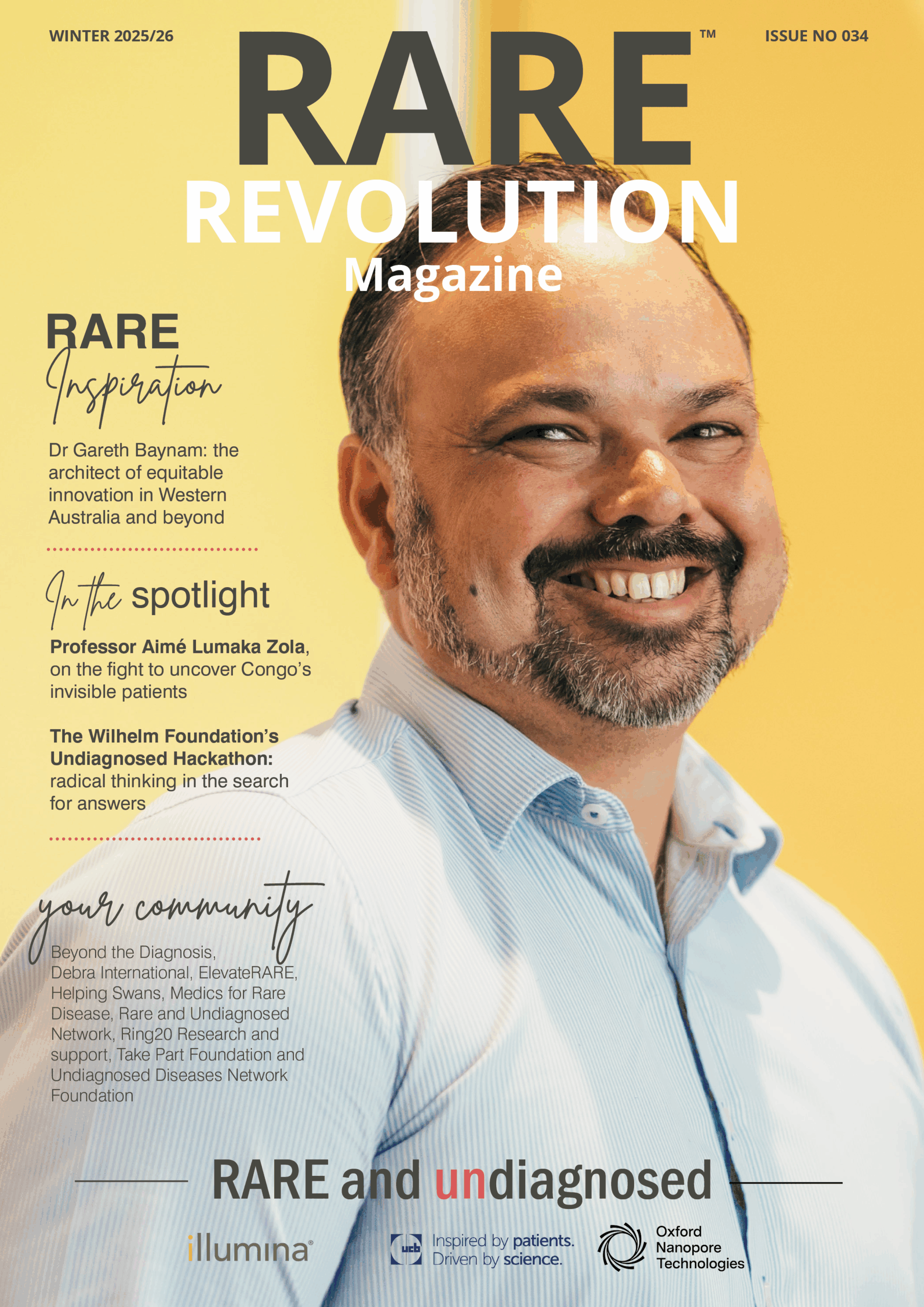Becker muscular dystrophy patients find hope in building a community
SPONSORED CONTENT
Written by
Mindy Cameron, patient advocate and freelance writer

Building a strong community of patients, caregivers and health professionals is often the key to turning the tide for people living with a rare disease. A shining example of this is currently underway in Becker muscular dystrophy.
Comparisons fail patients
Becker is related to the more well-known muscle-wasting disease Duchenne muscular dystrophy (DMD). Both primarily affect males, with Becker frequently described as milder with slower progression than DMD. What is often missed in the near-constant comparisons is that Becker patients have unique concerns about their health, their ongoing loss of mobility and the strain the disease can put on family, school and work life. According to research done by Edgewise Therapeutics, a pharmaceutical company with a Becker programme, the portrayal of Becker as less serious than Duchenne has contributed to feelings of isolation and confusion for many Becker patients.
Finding their own identity
In 2023, a consortium of patients, advocates, healthcare providers and researchers recognised the need for more focused opportunities for Becker patients and launched the inaugural Becker Education and Engagement Day, or BEED. The first event, held in December 2023 at four locations in the US, was such a resounding success that in 2024 BEED expanded. In September 2024, Becker patients in the EU joined the effort with events in Italy and the Netherlands. In the US, BEED was expanded to six locations (Washington, California, Missouri, Pennsylvania, Texas and Florida) and attendance more than doubled to over 330 members of the Becker Community. For many attendees, the BEED events marked the first time they had met another person living with Becker. These in-person connections have laid the foundation for an emerging patient community that is eager to be recognised in its own right. In the words of a BEED 2024 attendee, “finally it is happening. People are paying attention to Becker and we are so thankful because it is time!”
Learning from each other
No one knows the challenges of living with a rare disease better than fellow patients, parents and caregivers. Before BEED, there were few opportunities for people impacted by Becker to meet in person to share strategies and solutions to common problems. BEED sessions on enhancing and improving quality of life were lively, with attendees sharing tips on everything from benefits navigation to parenting young children diagnosed with Becker. “It was amazing to see how many other men with Becker have overcome major challenges to have fulfilling lives,” said one man. Another attendee, a young boy living with Becker, excitedly told his mother, “Mom, there ARE more kids and adults just like ME!“
Engaging healthcare providers
Patients and families are not the only ones expressing enthusiasm for more Becker–specific initiatives like BEED. Physicians, physical therapists and other healthcare providers have welcomed the opportunity to get involved and lend their expertise to this newly empowered patient community. To address concerns about Becker’s effects on the heart, for example, each BEED 2024 location featured in-depth Becker-specific presentations by leading cardiologists in the neuromuscular disease space. Similar talks about physical therapy, exercise and mental health provided valuable opportunities for patients to interact in person with experts, including other patients and families. To view recordings of some of the presentations, please visit the BEED YouTube channel at https://beckereducationandengagement.com/resources/.
“This was a great event for me to learn what I can do to take the best care of myself with this disease.”
BEED attendee
Education about research
Both Becker and Duchenne muscular dystrophy are caused by deficiencies of dystrophin, a protein that plays a critical role in protecting muscle fibres from injury. While some therapeutic approaches may apply to both conditions, the current research, clinical trial and approved therapy pipeline is heavily focused on Duchenne only. Today, there are no approved therapies on the market for Becker. Recently therapeutic possibilities for Becker have emerged and clinical trials are underway, but there is a great need for community education about this research and opportunities to participate. BEED events provided a wealth of information about the current research landscape in Becker, including presentations on a study designed to better understand the condition called Imaging NMD and ongoing clinical trials by Edgewise Therapeutics and ReveraGen Biopharma.
BEED inspires community, hope and friendship
The BEED events have given Becker patients and their families renewed hope by providing a place where they can learn from each other and work alongside healthcare providers and other stakeholders to build a strong community to improve health and quality of life. A parent at one of the 2024 event sites said, “our son and our family are finally truly hopeful, being with other families was a gift.”
“Two years ago there was no Becker community. Now we have a community and we have plans for the future and hope for a full life…adults, children and families have friends to turn to and are not alone on this journey anymore.”
Man living with Becker and BEED attendee
Planning for BEED 2025 is underway and you can find updates by following www.beckereducationandengagement.com. For more general information about Becker muscular dystrophy, please visit www.beckermusculardystrophy.com.

This article was sponsored by Edgewise Therapeutics



